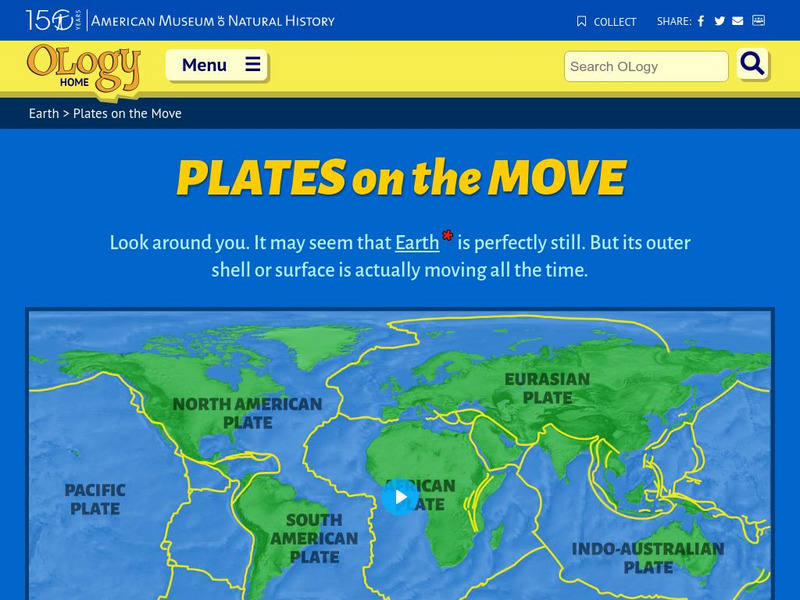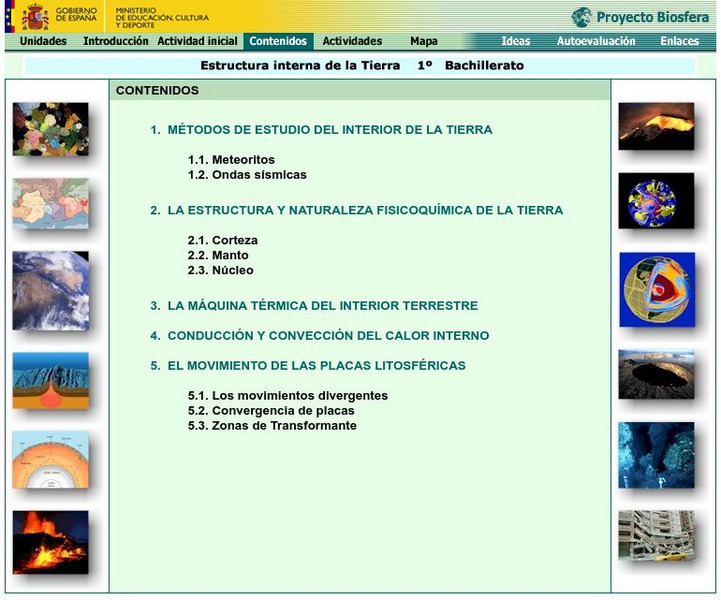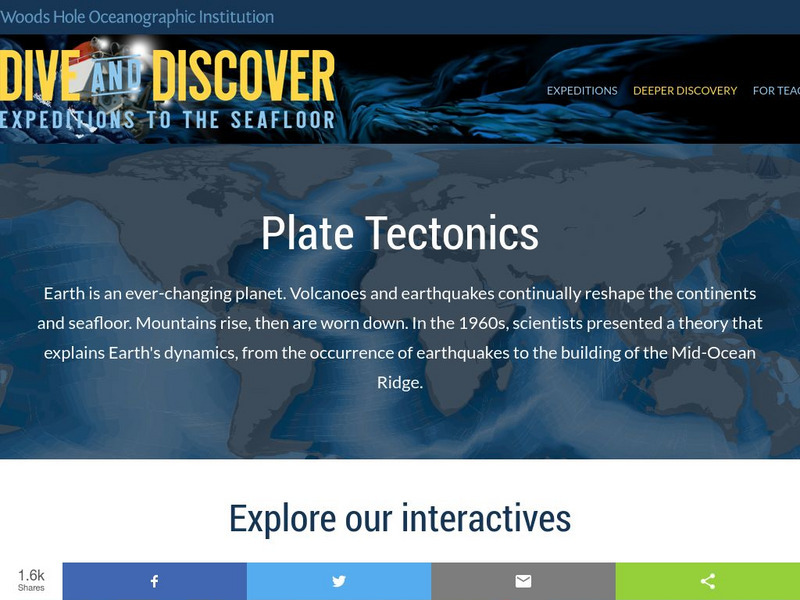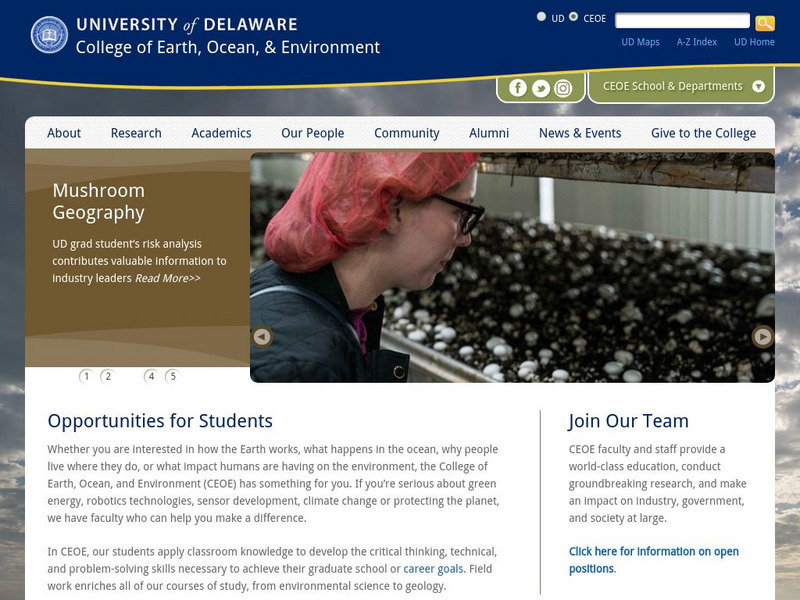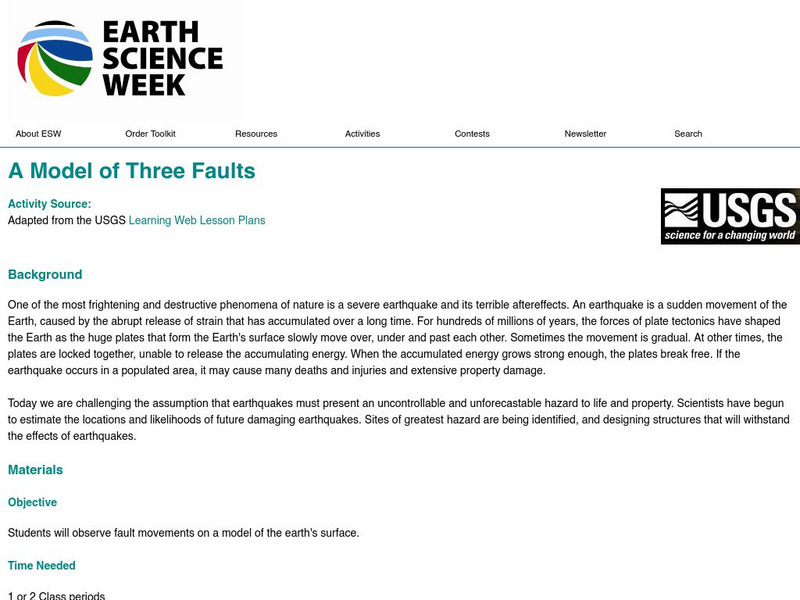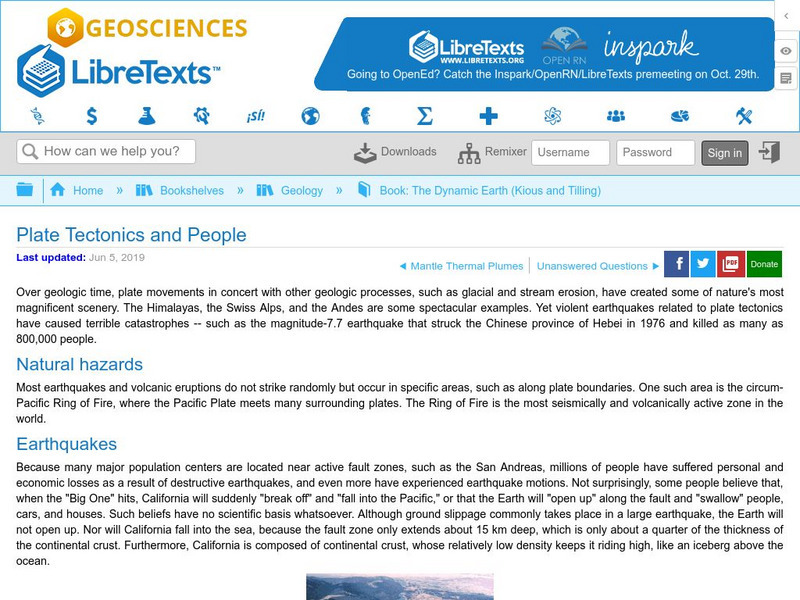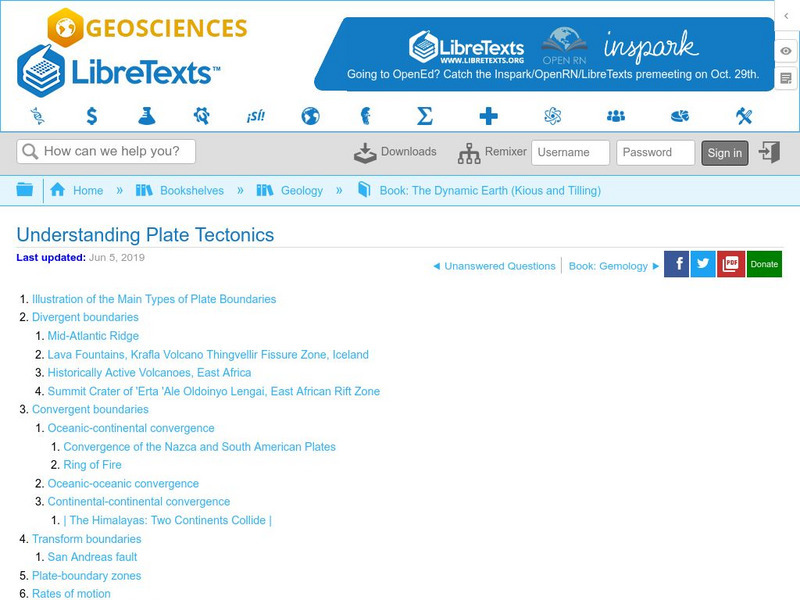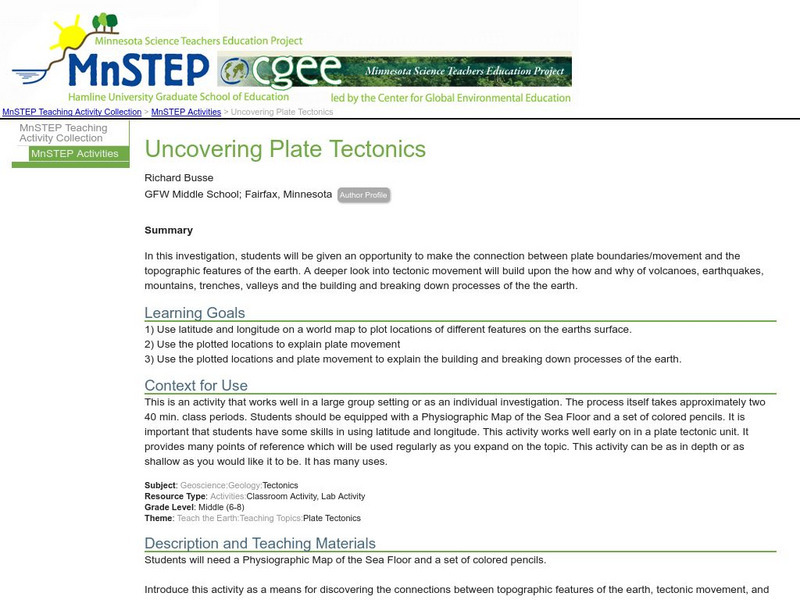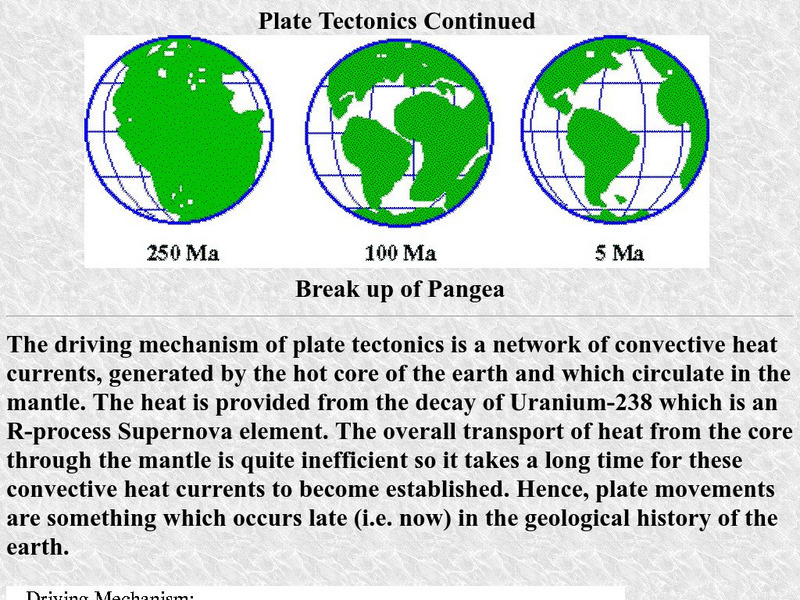Hi, what do you want to do?
American Museum of Natural History
American Museum of Natural History: O Logy: Plates on the Move
Find an interrelated set of tools--maps, animations, diagrams, photographs, and text--to help you understand tectonic plates and how they move.
CK-12 Foundation
Ck 12: Earth Science: Plate Tectonics Through Earth History Study Guide
[Free Registration/Login may be required to access all resource tools.] Summarizes the key points about the movement of tectonic plates throughout Earth's history. Includes a few questions to check for understanding.
Science Struck
Science Struck: Theory of Plate Tectonics
A detailed discussion of plate tectonics. Looks at continental drift, types of tectonic plates and plate boundaries, and primary and secondary tectonic plates.
PBS
Pbs Learning Media: Tectonic Plate Movement in Alaska
In this video adapted from KUAC-TV and the Geophysical Institute at the University of Alaska, Fairbanks, learn how tectonic plate movement is responsible for building mountains, such as the Wrangell and St. Elias Mountains. 2m 16s
South Carolina Educational Television
Know It All Media: Plate Tectonics: Plate Movements
Animated simulations showing the three types of plate movements: divergent, convergent, and lateral plate boundaries.
Northwestern University
Northwestern University: Measuring Plate Motions [Pdf]
This slideshow gives an advanced-level explanation of how to calculate the distance that tectonic plates move by using Physics formulas and concepts. Includes a discussion of marine magnetic anomalies and how these impact plate movement....
Science Education Resource Center at Carleton College
Serc: Analyzing Plate Motion Using Earth Scope Gps Data
In this chapter, you will access Global Positioning System (GPS) data from the Plate Boundary Observatory (PBO) and analyze the data in a spreadsheet to measure the motion of GPS stations in the Pacific Northwest. From your analyses, you...
National Institute of Educational Technologies and Teacher Training (Spain)
Ministerio De Educacion: Estructura Interna De La Tierra
In addition to exploring the inside of the earth, this unit will explore the consequences on the dynamics of the outer layers; it will deepen the knowledge of plate tectonics and the movement of the plates in the past. It includes 16...
Annenberg Foundation
Annenberg Learner: Dynamic Earth: Plates and Boundaries
Interactive website where students can learn about movement of earth's 15 major tectonoic plates and identify types of boundaries. Includes glossary and learning game.
Woods Hole Oceanographic Institution
Expeditions to the Sea Floor: Plate Tectonics
Interactive site provides information on the Breakup of Pangea, plate boundaries, plate movements as well as a quiz.
Other
University of Delaware: Plate Tectonics
This site is a very simple overview of plate tectonics. It includes a map of all the major plates and a diagram of the layers of the earth.
American Geosciences Institute
American Geosciences Institute: Earth Science Week: A Model of Three Faults
In this lesson, young scholars learn about the different kinds of faults and plate boundaries and where they can be found. They research and report on the faults that are present in their state. They are also asked to develop models of...
Libre Text
Libre Text: Plate Tectonics and People
Over geologic time, plate movements in concert with other geologic processes, such as glacial and stream erosion, have created some of nature's most magnificent scenery. The Himalayas, the Swiss Alps, and the Andes are some spectacular...
University of California
University of California: Understanding Earthquakes
This website is a resource for learning about earthquakes. Java animation at this site helps you visually understand the causes of earthquakes.
Story Behind the Science
Story Behind the Science: Development of a Mechanism for Continental Drift [Pdf]
Article describing the history of scientific theories about continental drift, and the major researchers involved in this work.
Science Struck
Science Struck: The Theory of Continental Drift
Explains what is meant by the Theory of Continental Drift, its earliest proponents, the stages of continental drift, the causes related to tectonic plate movement, the evidence that has been found, and how the Himalaya Mountains offer...
The History Cat
The History Cat: Geography: Places: Africa's Great Rift Valley
Describes the geography of the Great Rift Valley in Africa, how it was formed by tectonic plate separation, and the majestic lakes and falls that have been created by it.
Annenberg Foundation
Annenberg Learner: Essential Science for Teachers: Earth and Space 3
Visit an active volcano site to find out the connection between the movement of the Earth's plates and the processes deep within the Earth's interior. [58:23]
Exploratorium
Exploratorium: Earthquake Faultline Earthquake Activities
This outstanding website provides an excellent variety of hands-on earthquake activities to help you understand what causes earthquakes.
Soft Schools
Soft Schools: Plate Tectonics Quiz
The internal and external processes of Earth are related through the movement of Earth's plates, called Plate Tectonics. Find out how much you know about Plate Tectonics by taking this quiz.
Libre Text
Libre Texts: Understanding Plate Tectonics
Scientists have a fairly good understanding of how the plates of the Earth move and how such movements relate to earthquake activity. Most movement occurs along narrow zones between plates where the results of plate-tectonic forces are...
Science Education Resource Center at Carleton College
Serc: Uncovering Plate Tectonics
In this investigation, young scholars will be given an opportunity to make the connection between plate boundary movement and the topographic features of the earth.
Science Education Resource Center at Carleton College
Serc: Plate Kinematics
In this activity, learners will observe and understand the basic kinematics of plate movement, how oceans are formed during continental rifting, and the relationship between plate geometry and tectonic data such as earthquakes, heat...
University of Oregon
The Electronic Universe Project: Plate Boundaries/plate Tectonics
Visit this site to learn more about the different types of plate boundaries. Includes color pictures and easy-to-understand examples of how and why plates move the way they do.





